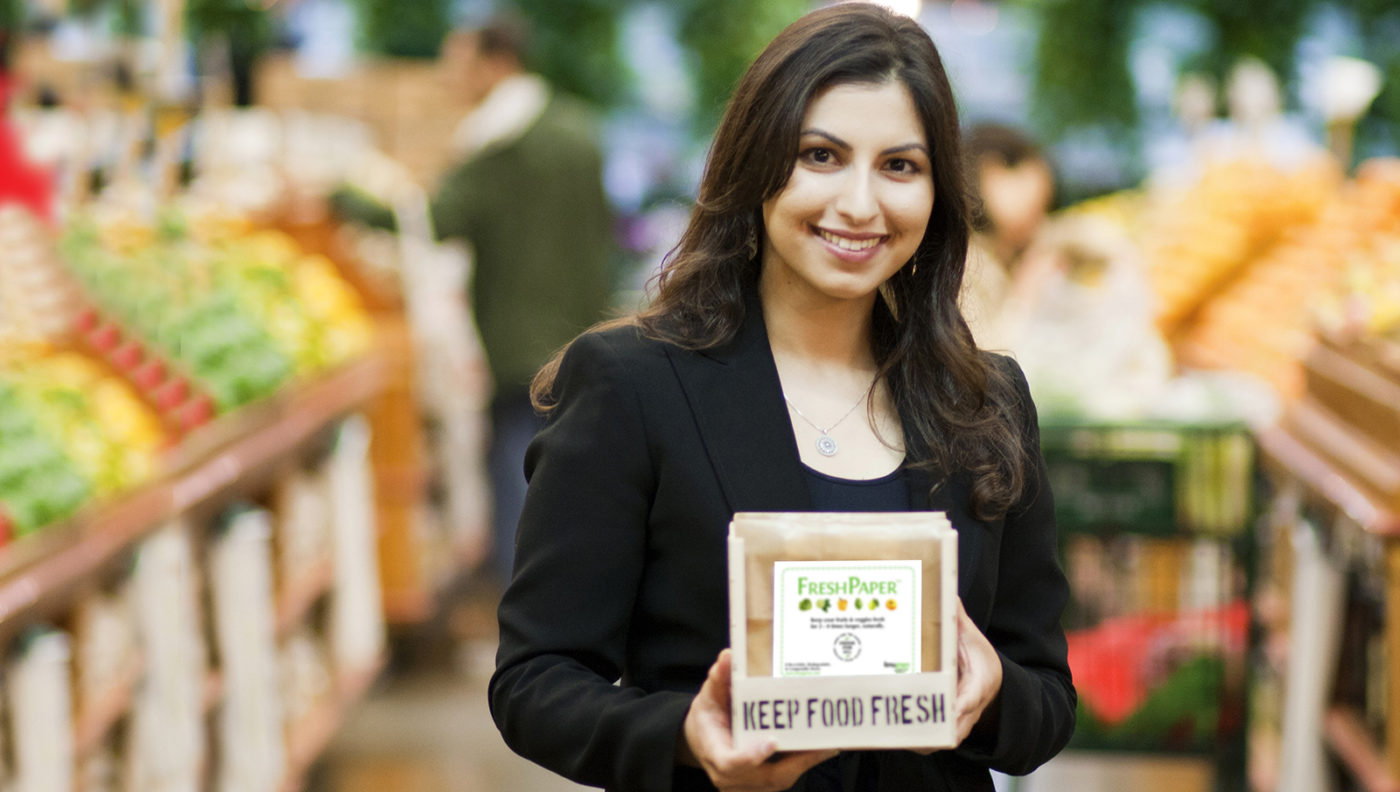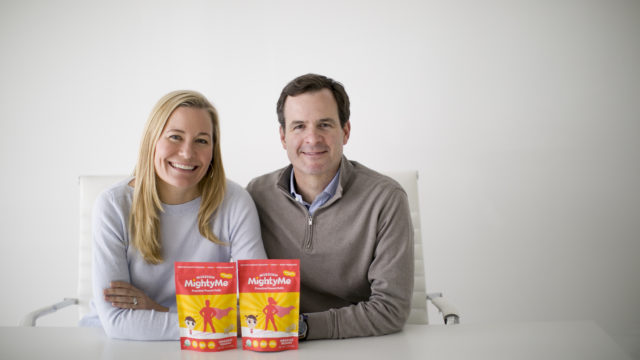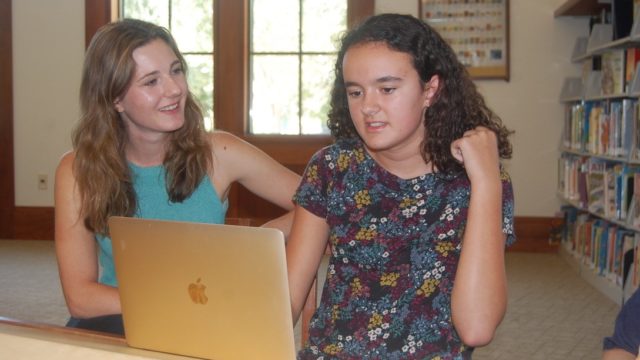
Believing in the Power of a Simple Idea
Kavita Shukla’s extended family lived in India and as a child she was unable to visit them frequently. However, one trip to see her grandmother literally changed her life.
“My parents told me not to drink the tap water because it could be contaminated,” she remembers. “I forgot and accidently drank some, and I started to panic because I thought I’d get really sick. My grandmother told me not to worry and gave me a solution she mixed from herbs and spices – kind of like a murky, brown tea. I drank it and amazingly, I didn’t get sick.”
Her grandmother’s home remedy had been in the family for generations and it sparked Kavita’s interest. She began doing middle school science projects on the ingredients and found that some stopped the growth of fungus and bacteria. She was so fascinated by the results that she continued her work in high school. “It was such a neat concept that something so simple could work so well,” she recalls. “I kept trying to think of how it could be used.”
Shopping for strawberries with her mother was the turning point. She couldn’t find any baskets without decaying strawberries. She decided to try her herb mixture on strawberries and a few days later, the results were unbelievable. The strawberries stayed fresh much longer than they should have. She began comparing fruits and vegetables dipped in the mixture with ones that were untreated. “It was remarkable to watch,” she says. “After several days, the fruits and vegetables I’d dipped were still fresh, but the other ones had grown mold.”
Armed with these results, she invented and patented FreshPaper when she was a high school senior. FreshPaper is a simple sheet of paper made with edible, organic ingredients that inhibit bacterial growth. It’s been called a “dryer sheet for produce.” Kavita explained that FreshPaper does not have to contact the produce to be effective. “You just toss one sheet into your vegetable drawer or fruit bowl.”
When she went to Atlanta for Scholars Weekend and excitedly told her interview committee about her invention, they opened her eyes to FreshPaper’s potential to change how people eat all over the world. “They made me realize how FreshPaper could be really transformative and have a much greater impact than I’d understood up to that point.”
Entering Harvard, Kavita remained excited about how FreshPaper could help people like her grandmother. “About 1.6 billion people still live without access to refrigeration and a simple, cost-effective solution like FreshPaper could change their lives.”
She tried to start a non-profit organization to get FreshPaper in the hands of those who needed it most but ended up learning how hard it could be to give something away for free. After repeated dead-ends, she began to doubt whether her idea had real world applications.
“I’d been working on this as long as I could remember, but I essentially gave up,” she says. “I started to think about graduate school, and I took a job in research after college. But all along, I couldn’t stop thinking about FreshPaper.”
Years of being a researcher made Kavita realize that an idea left in the lab – or in her case, the kitchen – was of no use to anyone. In 2010, she decided to give herself and her idea another chance. With a physician friend, she began going to local farmers’ markets, handing out sheets of FreshPaper and talking to farmers. For the first time she realized the extent of fruit spoilage here in the U.S.
Kavita and her friend founded Fenugreen (www.fenugreen.com) to see if selling FreshPaper would enable them to donate it to farmers, food banks and families in need. What started with local farm stands and no food industry experience grew into a successful operation. “Our idea spread through word of mouth, and people started buying from our small online store,” she says. “Within eight months we were shipping FreshPaper to stores across the U.S., including Whole Foods, and within a year we were shipping to 35 countries. Now we donate one pack of FreshPaper for every pack purchased. An incredible grassroots movement took our simple idea from our local farmer’s market to places we could never have imagined.”
She believes the positive reaction and support she got from her Coca-Cola Scholars interview committee transformed her vision of what her invention could do. “They helped me see that my simple idea could have an impact beyond anything I’d ever imagined.”


